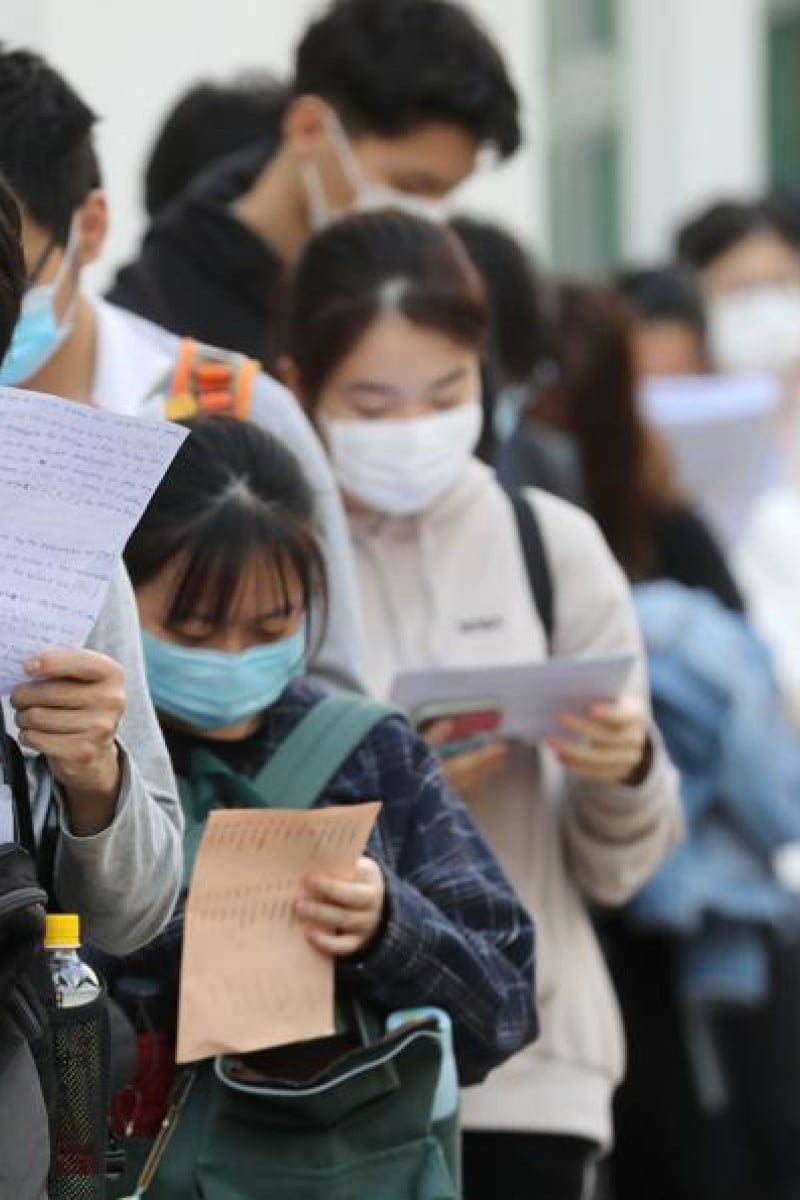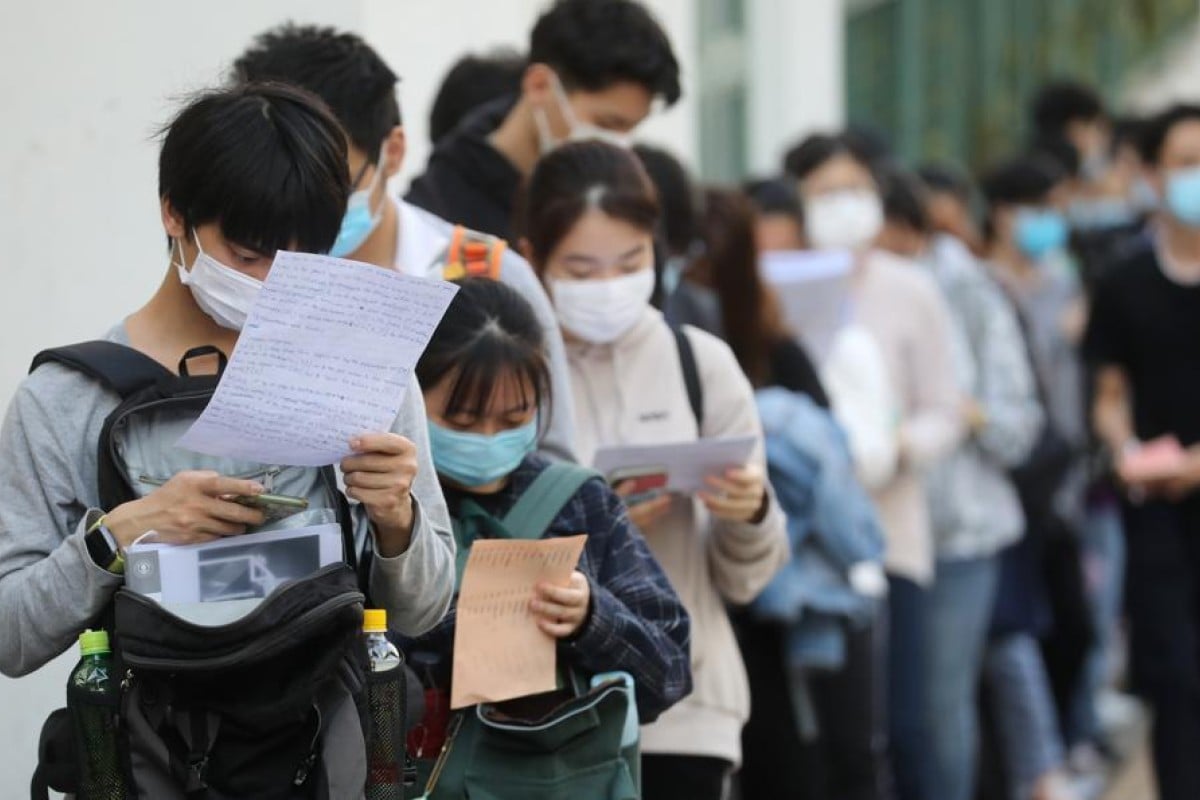
HKDSE 2020: To ace the economics exam, 'go in with a plan', say tutors
- Modern Education's Daniel Yu expects international trade and monopolies to show up on this year's assessment, as well as questions about the impact of social events.
- Cramming doesn't work; make sure to give yourself enough time to revise.
 Secondary school students waiting to take the DSE exam at the Hong Kong Sze Yap Commercial and Industrial Association Wong Tai Shan Memorial College, Shek Kip Mei.
Secondary school students waiting to take the DSE exam at the Hong Kong Sze Yap Commercial and Industrial Association Wong Tai Shan Memorial College, Shek Kip Mei.If studying economics for the DSE seems like a challenge, we have the perfect tips and advice from economics tutors Patrick Cheung from The iCon Education and Modern Education’s Daniel Yu.
“Studying economics is more rewarding than studying any other subject,” Cheung says, describing preparation as key. “If you put in the work, you will do well.” He explains the way to do revision is not just “drilling 10 years of papers” but analysing and becoming familiar with the questions and concepts that are asked in exams.
Cheung points out that students need to understand the exam question formats, the topics covered, the concepts of the subject, and the key words to use.
“Go in prepared with a plan, so you can sit down, read the questions and immediately know how to answer each question,” he says.
Top scorers at HKU give tips on how to study for the HKDSE
Having a plan is especially important for Paper 2 – short questions, structured questions, data response questions and the essay section – because candidates need to answer all the questions in two-and-a-half hours. “If you go in without a plan and start from scratch on each question, you won’t be able to [finish the exam].”
Going through past papers year by year can help you increase the speed at which you complete a paper. But to better understand the topics, look through the papers and categorise questions by topic, then work through those topics. “Make notes, and ask your teacher or tutor if you don’t understand something,” Cheung says.
However, he says it’s important that a teacher’s explanations are relevant. “Sometimes teachers give an academic explanation of a question, but not an exam answer. Sometimes even the exam notes you can buy are different from the model answers provided by the HKEAA.”
Cheung also suggests you stay abreast of economics news, such as the government budget.
Students say Maths DSE 'easier than last year'
“Exam topics could include the impact of social events or government tax aid for the retail industry,” he says, adding that both local and overseas news is important.
Yu echoes this point, saying that last year, “the data response questions were based on a lot of information and figures from the trade war,” a hugely topical issue. This year, therefore, he predicts that the Aggregate Demand/Supply topic questions might cover information related to the social unrest.”
Other possible topics might include recession figures and total GDP, bailouts and market intervention, budgets and government debt.
One main topic that Yu says is guaranteed to appear in the macroeconomics section is international trade, while other subtopics likely to appear are deposit creations; taxes (including direct and indirect taxes) and the business cycle plus unemployment; and inflation and the nominal interest rate.
Meanwhile in the essay section, he expects to see monopolies; pricing and marginal revenue; and trade and purchasing power parity.
Wording your answers clearly is extremely important.“For example, in a 2019 question on the [Sino-US] trade war, candidates had to be clear about which of the two countries was importing, and which exporting.”
It is also essential to have complete answers. “If you use a concept, you need to elaborate on it. For example, if the answer is a limited liability company, you need to explain what limited liability is, how the company is a legal entity, and so on. Don’t explain what you don’t know.”
It is also crucially important to do what the question asks. If it asks for a yes or no answer, provide one. If it asks for your stance on an issue, explain it clearly.
Yu’s final piece of advice? “Cramming doesn’t work. Decide what is important and allocate how much time to spend on each topic. Revision is the key to success.”
